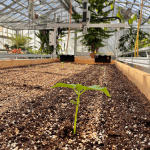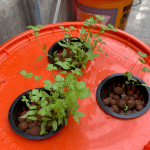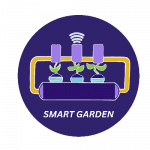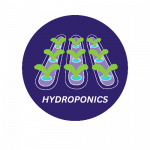Eco Innovate is an OPIM ran initiative that incorporates the central principles of the program with a healthy dose of eco-mindedness. Eco Innovate seeks to further the development of ecologically sustainable technology while educating on the importance of respecting the environment and adopting environmentally friendly development practices and technologies. The Eco-Innovate suite contains FarmBot, a zero-environmental-impact farming robot, a set of cutting edge hydroponic crop nurseries as well as grow2give a plant donation program that aims to educate about sustainability while providing a service to the community. Explore the goals of Eco Innovate.

FarmBot

FarmBot is an autonomous open-source computer numerical control (CNC) farming robot that prioritizes sustainability and optimizes modern farming techniques. Using computer numerical control, FarmBot can accurately and repeatedly conduct experiments with no human input and therefore, very little error. We can write sequences, plan regimens and events to collect data 24/7 in addition to monitoring the system remotely. This allows us to plan as many plants, crops, inputs, and operations as needed.

Hydroponics

With the right technology, a mass of microgreens and seeds can be grown all at once.
Grow 2 Give
With Grow2Give, our ‘Littlest Huskies’ at the Child Development Lab learn about the plant life cycle and complete a fun art project by decorating pots and planting mint plants. The plants are then donated to undergraduate students, as studies have shown that taking care of a plant has many of the same benefits to mood, sense of wellbeing, and connectedness that come from taking care of a pet. The fact that they were grown and decorated by preschoolers for this intended purpose can only enhance this beneficial impact.
FarmBot is an autonomous open-source computer numerical control (CNC) farming robot that prioritizes sustainability and optimizes modern farming techniques. Using computer numerical control, FarmBot can accurately and repeatedly conduct experiments with no human input and therefore, very little error. We can write sequences, plan regimens and events to collect data 24/7 in addition to monitoring the system remotely. This allows us to plan as many plants, crops, inputs, and operations as needed.

